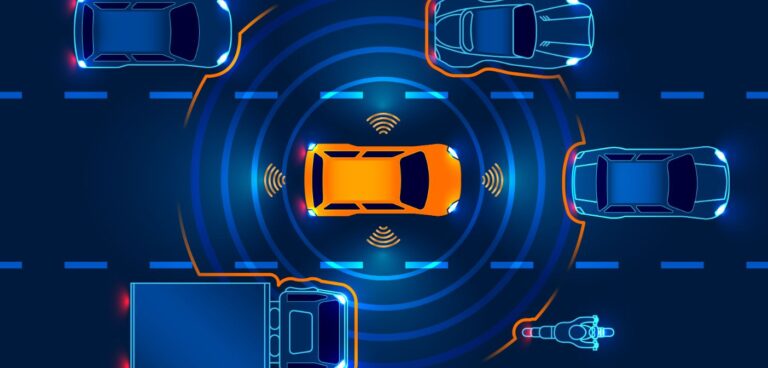UK roads could see autonomous vehicles rolled out by 2025 following the announcement of government plans – backed by £100m – that prioritise safety through new laws.
The new legislation is designed to enable the UK to take advantage of an emerging market of self-driving vehicles, which could create up to 38,000 jobs and could be worth an estimated £42bn.
Of the allocated £100m, some £34m has been confirmed for research to support safety developments and inform more detailed legislation.
This could include researching the performance of autonomous cars in poor weather conditions and how they interact with pedestrians, other vehicles and cyclists.
Some £20m will be put toward helping to kick-start commercial self-driving services and enable businesses to grow and create jobs in the UK, following an existing £40m investment.
Successful projects could help see, for example, groceries delivered to customers by self-driving vehicles, or shuttle pods assisting passengers when moving through airports.
Some £6m will also be used for further market research and to support commercialisation of the technology.
UK business secretary Kwasi Kwarteng said: “Self-driving vehicles have the potential to revolutionise people’s lives, particularly by helping those who have mobility issues or rely on public transport to access the jobs, local shops and vital services we all depend on.
“This funding will help unlock the incredible potential of this industry, attracting investment, developing the UK’s growing self-driving vehicle supply chain, and supporting high-skill jobs as these new means of transport are rolled out.”
According to the government, vehicles that can drive themselves on motorways could be available to purchase within the next year, which users would need a valid driving licence for, so they can drive on other roads.
Other self-driving vehicles, for example used for public transport or delivery, expected on the roads by 2025, would not need anyone onboard with a driving licence because they would be able to drive themselves for the whole journey.
The government said it is consulting on a ‘safety ambition’ for autonomous vehicles to be as safe as a competent and careful human driver.
This ambition would inform standards that vehicles need to meet to be allowed to ‘self-drive’ on the roads, and organisations, such as manufacturers, could face sanctions if standards are not met.
The legislation will build on existing laws and state that manufacturers are responsible for the vehicle’s actions when self-driving, meaning a human driver would not be liable for incidents related to driving while the vehicle is in control of driving.
Thatcham Research, an automotive research centre for motor insurers, welcomed the government’s announcement but stressed that collaboration between government, regulators, carmakers and the insurance industry will be essential to creating a safe system for adoption.
“All the ingredients are present for the UK to become a global leader in this space,” said Jonathan Hewett, chief executive of Thatcham Research.
“However, it is paramount that we make sense of the data these vehicles will provide, to inform risk and ultimately pave the way for safe adoption.
“Any challenges encountered by vehicles with self-driving capability will be heavily scrutinised.
“Complete clarity around the driver’s legal responsibilities, along with how the technology is marketed, how the dealer describes systems when handing over the keys and how the self-driving system itself communicates with the driver, will play its part too.”
Today also sees the publication of the Centre for Data Ethics and Innovation’s Responsible Innovation in Self-Driving Vehicles report, which sets out proposals for a trustworthy approach to the regulation and governance of self-driving vehicles.









